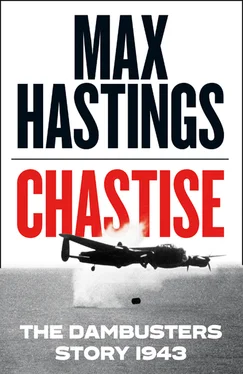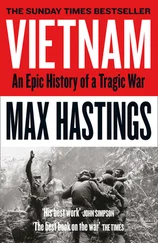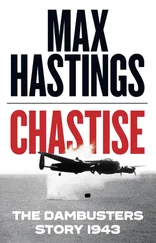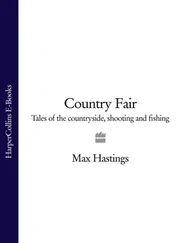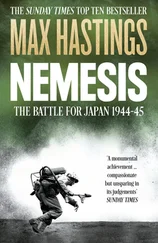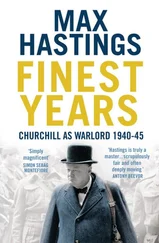Harris became the most intemperate squabbler. He regarded with contempt Special Operations Executive, the covert warfare organisation for which a handful of bombers was grudgingly committed to drop arms to the Resistance in Occupied Europe. As for sailors, it was one of his favourite sayings that the three things one should never take on a boat were an umbrella, a wheelbarrow and a naval officer. He fought like a tiger against the diversion of heavy aircraft to support the Battle of the Atlantic, arguing that it was a far more economical use of force to bomb U-Boats in their German construction yards than to waste flying hours searching for them in the vast reaches of the oceans. He described the RAF’s Coastal Command as ‘an obstacle to victory’, despite the importance of its Very Long Range Liberator squadrons in countering U-Boats. Meanwhile the admirals, who had a good case in pleading for more aircraft, spoilt this by insisting that Bomber Command should repeatedly attack the Germans’ concrete submarine pens on the north-west French coast, which were invulnerable to conventional bombs, and heavily defended by flak and fighters.
Harris waged a further ongoing struggle with the Air Ministry, of which much would be seen in the debate about Germany’s dams. The C-in-C of Bomber Command was an elemental force, single-minded in his conviction that he, and he alone, could contrive the defeat of Nazism through the systematic, progressive destruction of Germany’s cities. Alan Brooke, chief of the British Army, recorded characteristic Harris testimony at a chiefs of staff meeting: ‘According to him the only reason why the Russian army has succeeded in advancing is due to the results of the bomber offensive! According to him … we are all preventing him from winning the war. If Bomber Command was left to itself it would make much shorter work of it all!’
Freeman Dyson, a brilliant young scientist who spent much of the war in the Operational Research section of Bomber Command at High Wycombe, characterised his chief as a ‘typical example of a prescientific military man … brutal and unimaginative’. Hyperbole was this glowering figure’s first choice of weapon in exchanges with those who crossed him. This became a kind of madness, and Harris a kind of madman, but in the unwelcome predicament of Britain for much of the Second World War, Churchill recognised that such a figure had important uses. Horace Walpole wrote in the mid-eighteenth century: ‘No great country was ever saved by good men, because good men will not go to the lengths that may be necessary.’
Though Harris became the foremost exponent of ‘area bombing’, which has ever since been inseparably identified with his name, he was not its begetter, merely its obsessive implementer. It was widely believed, especially by soldiers and sailors, that Bomber Command’s C-in-C achieved an intimacy with Churchill, by exploiting the proximity of Chequers to his headquarters at High Wycombe, to secure support for his purposes. This view seems unfounded. The prime minister after the war described the airman as ‘a considerable commander’. He rightly judged that Harris instilled in the bomber offensive a dynamic, a sense of purpose, which it had previously lacked. He valued the airman’s skilful exploitation of public relations, conspicuously manifested in his May–June 1942 ‘Thousand Bomber raids’, of which the most famous, or notorious, was directed against Cologne.
Yet the prime minister never much liked ‘Bert’ Harris – as he was known to intimates. ‘There was a certain coarseness about him,’ Churchill observed, implicitly contrasting the airman, who set no store by social graces, with such officers as Sir Harold Alexander, a gentleman in every respect, who became Churchill’s favourite general. Harris, just short of fifty when he assumed command, was the son of an engineer in the Indian Civil Service. He spent much of his youth in southern Africa, and especially Rhodesia, which he came to love. The reverse of the coin of his force of character was a vulgarity of language and behaviour, exemplified by his observation that Britain’s generals would take tanks seriously only ‘when they learned to eat hay and fart’.
He experienced a lunatic moment in January 1943, when he became so incensed by the incidence of venereal disease among aircrew that he issued an edict, without consultation, that every diagnosed sufferer should be obliged to restart from scratch his tour of thirty ‘trips’ to Germany. This monstrous threat, rooted in a notion that shirkers were inviting infection in order to escape from operations, was withdrawn only in June, following the intervention of Sir Archibald Sinclair, Secretary of State for Air, who overruled the C-in-C.
Nonetheless, at a time when many others to whom Churchill entrusted high commands – for instance Dill, Wavell, Auchinleck – had proved weak vessels, despite their impeccable manners, Harris, a four-letter man in the eyes of most of his peers, possessed qualities that the prime minister valued. He said long afterwards of Bomber Command’s chieftain, in conversation with his last private secretary: ‘I admired his determination and his technical ability. He was very determined and very persuasive on his own theme. And the Prof. [Lord Cherwell] backed him up. You must remember that for a long time we had no other means than Bomber Command of hitting back. The public demanded action and rejoiced at our counter-blows at German cities after Coventry and so many other towns … Large numbers of German aircraft and vast resources of manpower and material were tied up in their air defence.’
Harris’s personal life was unorthodox. His recreation was driving ponies: he had been known to take the reins of his own trap to travel to Chequers to see the prime minister; if called upon, he could manage a four-horse team. His wife Barbara walked out on him in 1934, securing a contested divorce on grounds of his adultery. Thereafter, their three children as well as herself were ruthlessly written out of the script of his life, and even out of his subsequent official biography. Not long afterwards he proposed marriage, down the intercom of a Hornet Moth biplane in Rhodesia, to a very young woman to whom he was giving a joyride. ‘I think it would be very nice if you were to marry me – will you?’ Harris demanded of Polly Brooks, who – in P.G. Wodehouse’s phrase – turned him down like a blanket. Miss Brooks offered the reasonable excuse that the airman was old enough to be her father, though she added politely, ‘It’s very nice of you to ask me.’
Instead, in 1938 he married another very young woman, twenty-three-year-old Therese Hearne, a strong-minded Catholic always known as Jill, who gave birth to a daughter, Jackie, the following year. Thus, through the years during which Harris directed Britain’s bomber offensive from his High Wycombe headquarters, at his official residence in nearby Springfield House a wife more than twenty years his junior entertained a procession of Allied warlords while rearing a small child.
Conflict was Harris’s environment of choice, his feuds tempered only by a harsh wit. He once scrawled on a memorandum describing complex alternative means of destroying a target: ‘TRY FERRETS’. He enjoyed the joke against himself of being stopped for speeding in his Bentley – an offence which he revelled in repeating – and rebuked by a policeman who told him that he might have killed someone. ‘Young man,’ the air marshal replied, albeit surely apocryphally, ‘I kill thousands of people every night!’ His staff and close associates were unable to decide whether the chronic ulcers from which he suffered stimulated his ill-temper, or were precipitated by it.
During the year since the new C-in-C assumed direction of Britain’s strategic air offensive, he had transformed Bomber Command from a transport service dumping ordnance almost indiscriminately around the German countryside into a serious weapon of war. Sceptics, some of them within the RAF, sustained doubts about whether burning cities was doing anything like as much as Harris claimed to advance Allied victory. Sir Wilfrid Freeman, Portal’s able vice-chief, wrote to the CAS on 16 September 1942 deploring the grossly exaggerated claims made by some commanders: ‘in their efforts to attract the limelight, they sometimes exaggerate and even falsify facts. The worst offender is C-in-C Bomber Command.’
Читать дальше
